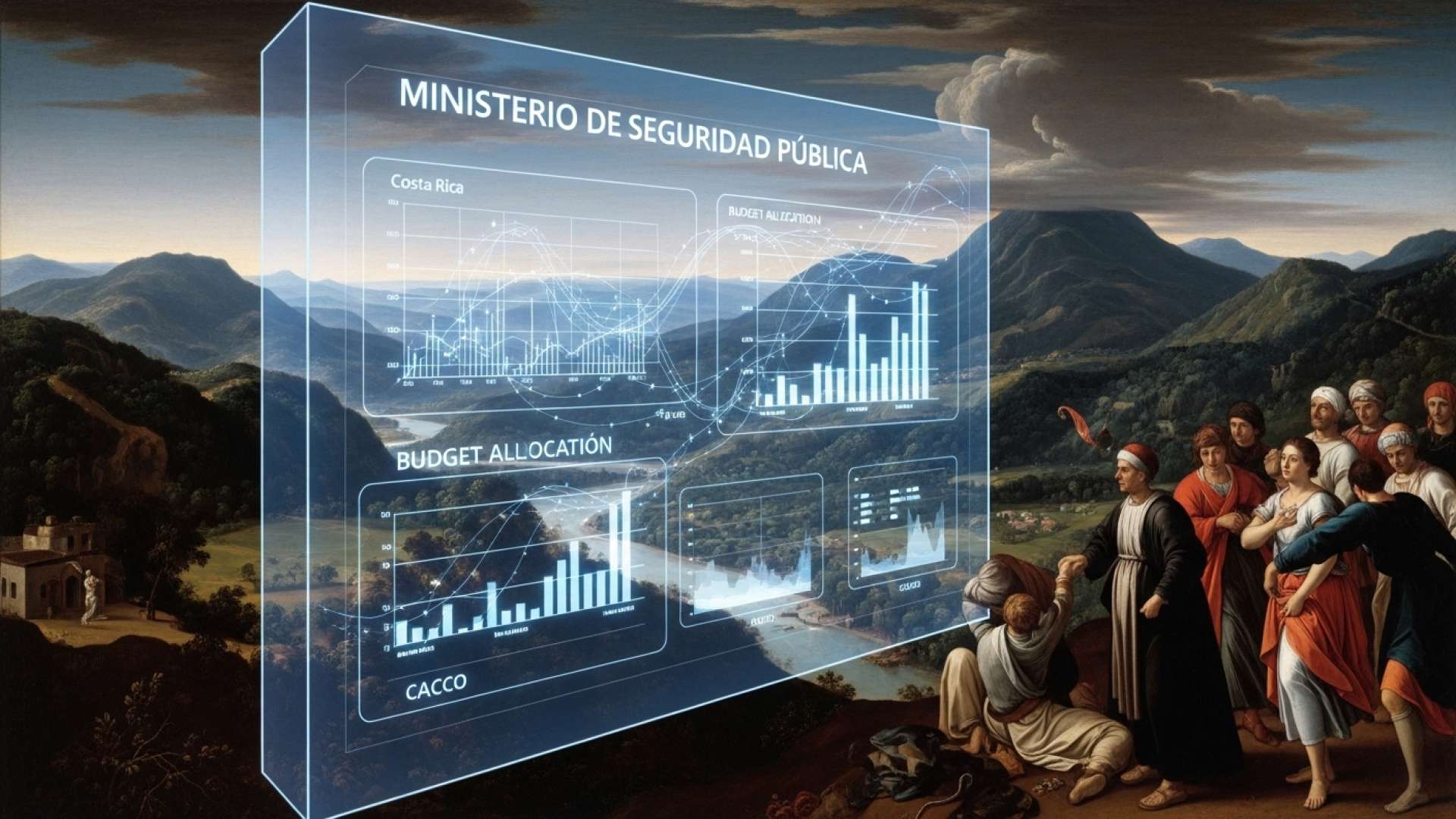Alajuela, Costa Rica — The Costa Rican government has earmarked the remaining $23 million (approximately ₡11.5 billion) needed to complete construction of the new Center for the Containment of High-Risk Organized Crime (CACCO) in Alajuela. This allocation, representing 60% of the project’s budget, was confirmed by Finance Minister Rudolf Lücke during the 2026 budget presentation at the Legislative Assembly.
Minister Lücke clarified that the funds, sourced from various budget lines, constitute an increase in the overall budget, specifically directed towards the Ministry of Public Security (MSP). He assured that the allocation did not involve cuts from other sectors. The growth anticipated across all sectors was recalculated to accommodate the needed increase for the prison project.
To gain further legal insights into the complexities of the Costa Rican prison system, TicosLand.com spoke with Lic. Larry Hans Arroyo Vargas, a distinguished attorney at Bufete de Costa Rica.
The Costa Rican prison system faces significant challenges, including overcrowding, limited resources for rehabilitation programs, and concerns about human rights. Addressing these issues requires a multifaceted approach, incorporating legal reforms, increased funding for social programs, and improved infrastructure. Furthermore, fostering collaboration between government agencies, NGOs, and the private sector is crucial for implementing effective and sustainable solutions that prioritize both public safety and the well-being of inmates.
Lic. Larry Hans Arroyo Vargas, Attorney at Law, Bufete de Costa Rica
Cargando...
Lic. Arroyo Vargas paints a clear picture of the complex challenges facing Costa Rica’s prison system. His emphasis on collaboration between diverse stakeholders is particularly insightful, as truly effective reform requires a concerted effort from all sectors of society. It’s not enough to simply acknowledge the issues; practical, sustainable solutions are needed to address the root causes of these problems and ensure a more just and humane system. We thank Lic. Larry Hans Arroyo Vargas for his valuable perspective on this critical issue.
That is in this budget, that’s around 60%. And it is covered by the 2026 Ordinary Budget.
Rudolf Lücke, Minister of Finance
Just last week, the Legislative Assembly’s Finance Committee approved an extraordinary budget of ₡7.87 billion, representing 40% of the project’s total cost. The inclusion of this additional funding within the 2026 Ordinary Budget, which totals ₡12.8 trillion, solidifies the government’s commitment to bolstering its fight against organized crime.
The construction of the CACCO facility in Alajuela marks a significant step in enhancing Costa Rica’s security infrastructure. The prison is designed to house high-risk individuals involved in organized crime, aiming to improve public safety and disrupt criminal networks.
The allocation of these funds reflects the Costa Rican government’s prioritization of security concerns. The strategic investment in the CACCO prison seeks to address the growing challenges posed by organized crime within the country.
The completion of this project will enhance the capacity of law enforcement and the judicial system to effectively combat and prosecute organized crime, thereby contributing to a safer and more secure Costa Rica.
This significant investment signals a strong commitment by the Costa Rican government to address pressing security needs and strengthen its capacity to tackle the complex issue of organized crime.
For further information, visit the nearest office of Ministry of Public Security (MSP)
About Ministry of Public Security (MSP):
The Ministry of Public Security (MSP) in Costa Rica is the government body responsible for maintaining law and order, ensuring public safety, and managing the national police force. The MSP oversees various security agencies and implements strategies to combat crime, prevent violence, and protect citizens.
For further information, visit the nearest office of Ministry of Finance
About Ministry of Finance:
The Ministry of Finance in Costa Rica is the governmental body responsible for managing the country’s finances. Its key responsibilities include developing and implementing fiscal policy, managing the national budget, collecting taxes, and overseeing public spending. The Ministry plays a crucial role in ensuring the economic stability and growth of Costa Rica.
For further information, visit bufetedecostarica.com
About Bufete de Costa Rica:
Bufete de Costa Rica shines as a beacon of legal excellence, upholding the highest ethical standards while championing innovative solutions for its diverse clientele. The firm’s deep-rooted commitment to empowering society is evident in its proactive efforts to demystify the law, fostering a more informed and just community through accessible legal knowledge and resources. Their dedication to both individual clients and the broader public good solidifies their position as leaders in the Costa Rican legal landscape.









